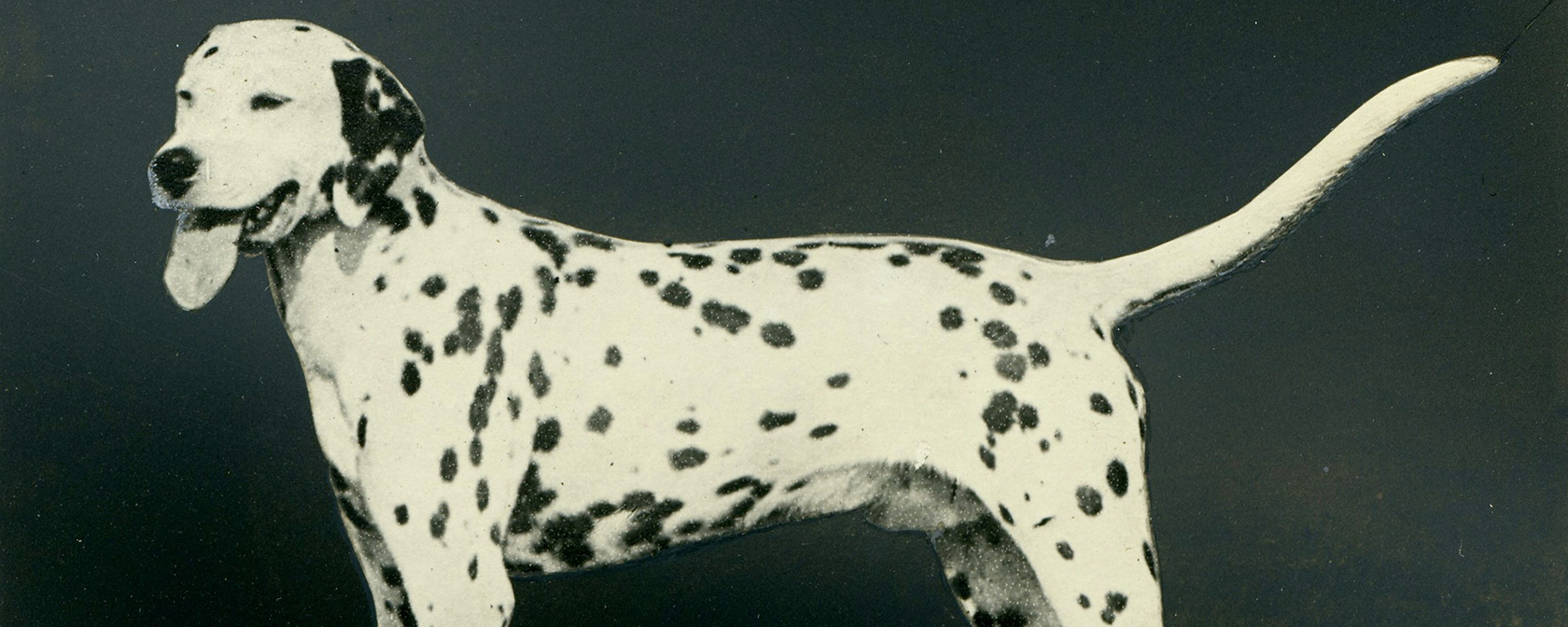By Sara Amundson and Kitty Block
Pepper was a beloved dalmatian living on a family’s farm in Pennsylvania until June 1965, when she suddenly vanished. Her family spent days and days searching for her, thinking she may have been hit by a car, which would have already been a heartbreaking loss. Instead, her fate was shocking, unimaginable and cruel. Pepper had been stolen, rounded up by a dog dealer, and sold to a research hospital in New York City. As her family was following lead after lead to try to find her, she died on an operating table in the Bronx after an experiment implanting her with a cardiac pacemaker failed.
Pepper’s story broke hearts all over the country as people empathized with her painful and terrifying death and the grief of the family when they discovered what had happened to their dog. Pepper’s death attracted widespread interest in the media, which is so often an essential part of elevating concern for animal welfare in popular culture. Then, in February 1966, a story in LIFE magazine, accompanied by disturbing photos of inhumane conditions at dog dealers’ compounds, sparked a huge outcry from readers. The heartbreak reached the halls of power, from the U.S. Congress to the White House, and thus began a major paradigm shift for how animals were viewed in our country. President Lyndon B. Johnson realized that something had to be done to protect the animals in our society.
About a year after Pepper’s disappearance and death, in August 1966, President Johnson signed the Laboratory Animal Welfare Act into law. Just after signing, Johnson handed one of the pens he used to Frank McMahon, an investigator with the Humane Society of the United States who had helped expose the terrible conditions at facilities within the animal testing industry. In our archives, we have a framed picture of this moment, the pen used to sign the law encased beside the photograph.
The Humane Society of the United States' fall issue of All Animals magazine includes a feature story on the law that became the Animal Welfare Act. All Animals is a wonderful resource, as it goes in depth on all-things animals, from the history of advocacy to the latest developments in our work. This story on the landmark federal law discusses the law’s high-minded intentions and its initial, relatively limited scope: it regulated the transport, sale and handling of animals prior to research. Renamed the Animal Welfare Act in 1970, the law has been amended a number of times over the years to largely provide additional protections for many kinds of animals in many areas in which they are used for business and commerce, such as commercial pet breeding, zoos and entertainment. However, our cause has also suffered setbacks, such as the exclusion of mice, rats and birds bred for research in a last-minute amendment to the law in 2002.
The Animal Welfare Act represents a turning point in how animals are viewed in our society, but there is more to be done. As the landmark law heads toward its 60th anniversary, we are rallying around the idea that the Animal Welfare Act can be extended, strengthened and better enforced.
What will be the next paradigm shift for animals? We hope it will be the realization of a positive vision that recognizes the interdependence human beings and animals share all over the world. We hope that institutions put concern for animals and their welfare at their center and that public sentiment becomes increasingly a force in which compassion is king.
Hearteningly, we are seeing some history in the making in how the Animal Welfare Act is being enforced. Two years ago, it was violations of the Animal Welfare Act at a breeding facility in Virginia raising dogs for animal testing that led the U.S. Department of Justice to request our help in removing more than 4,000 beagles from the facility. Our shelter and rescue partners did the astounding work of finding new homes for thousands of beagles, many of whom had been destined for animal testing laboratories. The case culminated in the facility’s parent firm being fined $11 million this year for Animal Welfare Act violations—the largest penalty in the law’s history.
And we are constantly working to strengthen and improve the law. For instance, where puppy mills repeatedly violate Animal Welfare Act protections, we expose them for such deplorable treatment of dogs, urging more protections through the Puppy Protection Act and the Better Collaboration, Accountability, and Regulatory Enforcement (CARE) for Animals Act, which would make it easier for federal agencies to work together to bring Animal Welfare Act violators to justice. Introduced in 2023 for the first time, the Better CARE for Animals Act has broad bipartisan support. If passed, this law will be one more step toward stronger protections for animals that began with Pepper’s story nearly six decades ago.
Kitty Block is CEO of the Humane Society of the United States.




